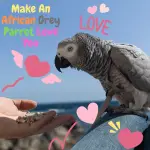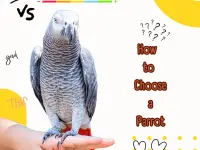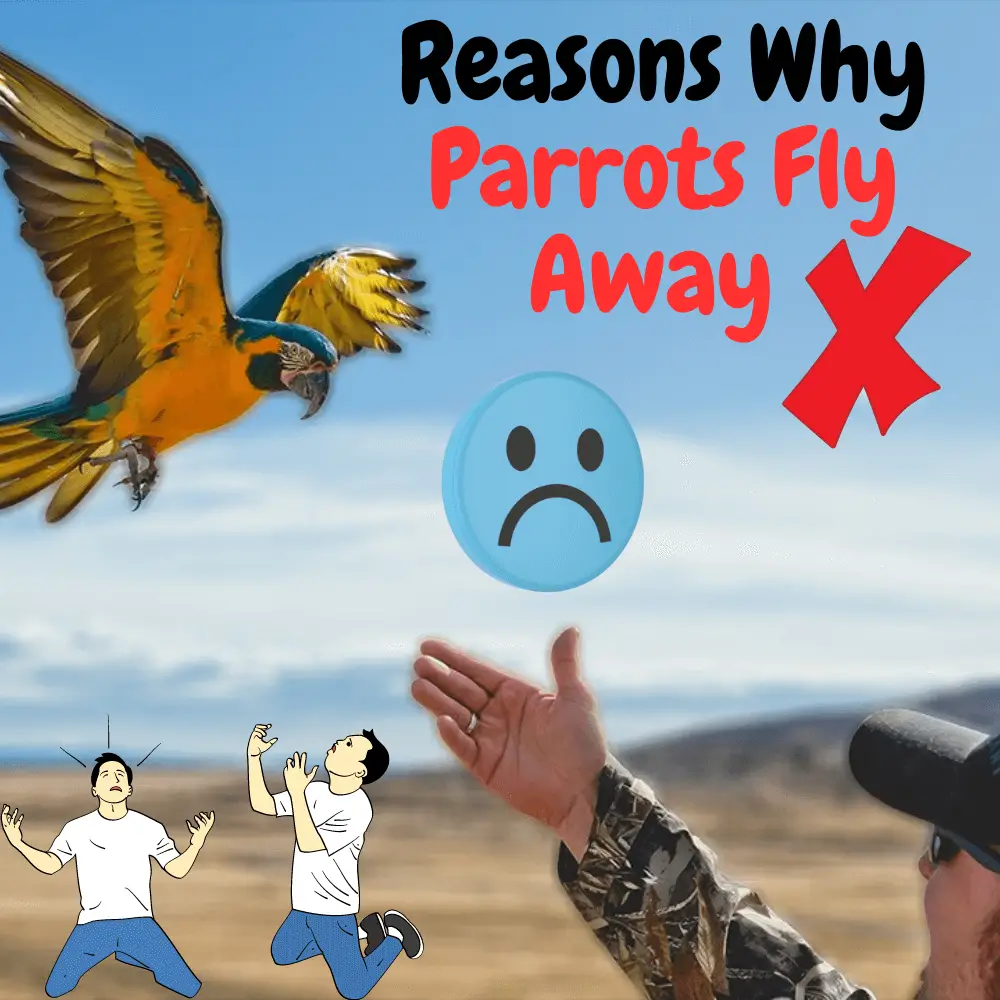
Parrots fly away: All bird owners have already faced it one day. We think that we have tamed and tamed our parrot, we take him out of his cage and… In a flash, it flew away! And he won’t come back…
Discover in our special report the flight of parrots, how to prevent it, and much more.
Why do parrots fly away?
There are two scenarios when a parrot flies away. The first is that of wild parrots, and for them, flying away is an instinct because they perceive humans as potential threats, and as you know, parrots are at the bottom of the food chain, so they are more likely to fly away.
The second scenario occurs with pet parrots, and there are a few reasons why parrots fly away. And these may include:
- The parrot is still not trained or tamed
- Lack of security
- Solitude
- Lack of toys and equipment
- A stressful environment.
Of course, parrots can fly away simply because of a fragile or poorly locked cage.
Reasons why parrots fly away
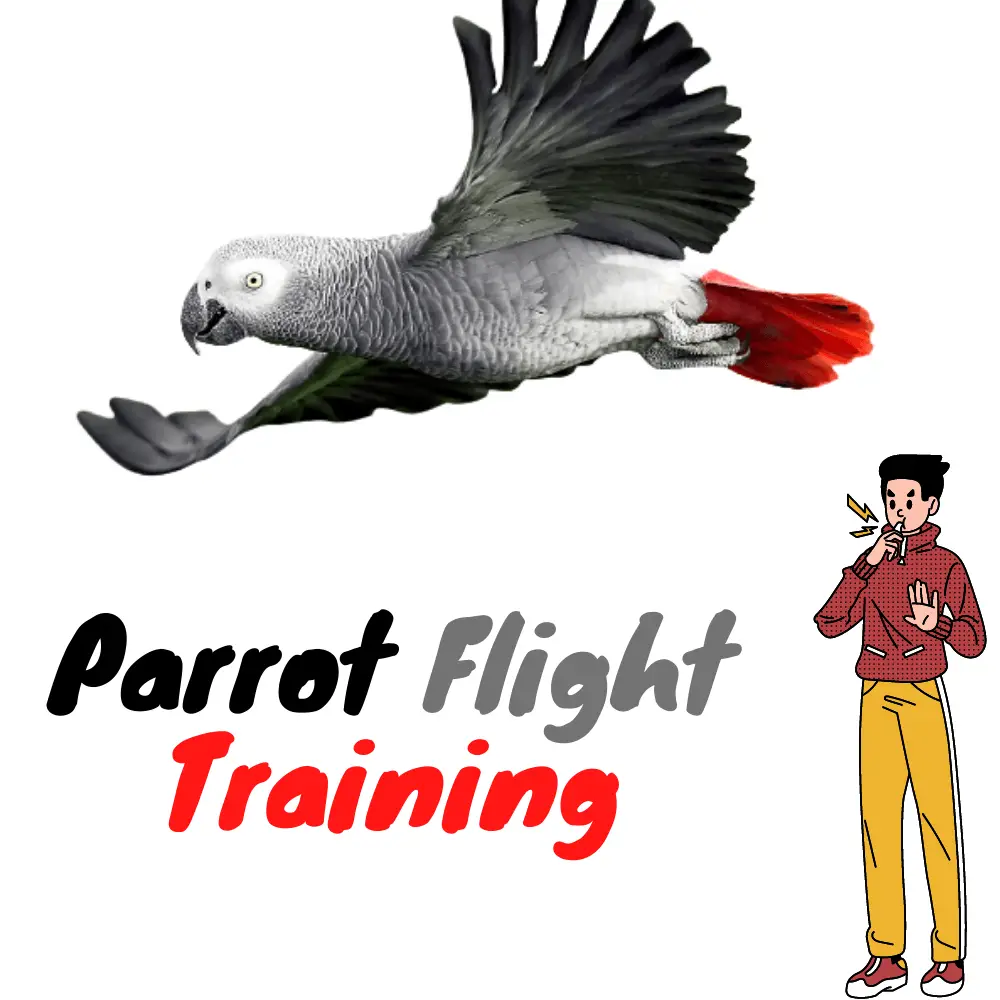
Untrained or untamed parrot
This is the most obvious reason why a parrot can fly away and escape. As an owner, you can provide your bird with everything it needs: food, safety, etc. But the problem is that untrained parrots do not see this and do not understand why they live in a cage with another living being that might attack them one day.
Thus, the instinct of an animal that is at the bottom of the food chain will be stronger and every time you approach the cage, it will fly away; at least until you tame your parrot.
The parrot can wait for the opportunity to get out and fly away, and some even learn to open the cage on their own, which happened to one of my grandmother’s African grays who escaped from her cage after breaking it with her powerful beak.
Insecurity
Safety is an important issue for the parrot, and even tame parrots sometimes feel vulnerable, especially in large families with other pets like dogs and cats. Socializing your parrot with a family member can resolve insecurities from family members. But it’s much harder to resolve insecurities from other pets like dogs and cats.
So, naturally, instinct will strike and the parrot will develop the desire to escape from home.
Loneliness
Loneliness is another problem that parrots often encounter, especially as pets. You may think that parrots can feel great if their owner is present for 2-3 hours a day, but this is totally false. Parrots need to stimulate their brains to maintain their sanity, and the only thing they have to do so is interacting with the owners of another cage mate.
Loneliness can also affect physical health and lead to denial of food and feather pulling. And if the solitary bird has the opportunity to escape, he will seize it without hesitation. So be sure to interact enough with your bird so that the bond and loyalty between you reach higher levels.
Insufficient diet
An insufficient diet can cause the parrot to look for food outside, and when the opportunity arises, the parrot flies away even if it has been tamed and socialized. This problem is very common in pet parrots and you need to be careful to provide your bird with a diverse diet containing seeds, nuts, fruits, and vegetables.
This problem can also cause the parrot to develop severe mental health like depression, anxiety, and aggression.
Bad environment
The most important thing when raising a parrot is to provide it with an optimal place to live. A place where your bird will be safe, stimulating, and clean. The living room of your home is a great place for your parrot’s cage or supports. But make sure it is completely safe.
Apart from that, the temperature should be optimal, you don’t want your parrot to get sick because of cold or heat. 27 degrees is the best temperature for most parrots.
Our visitors also consulted:
- A simple tip for an African gray parrot to love you!
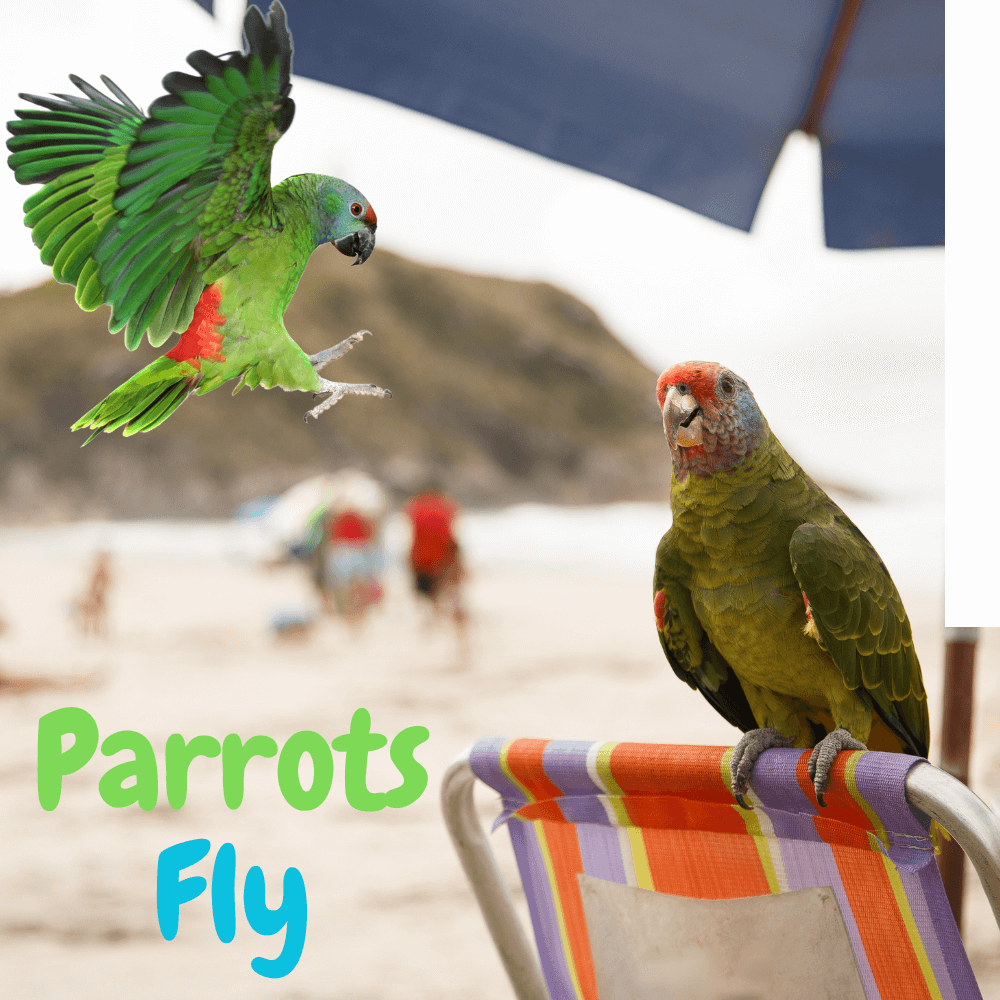
How to prevent your parrot from flying away?
By solving the previous reasons, you will significantly decrease the possibility of a parrot flying away. However, parrots remain exotic and wild animals, and their instincts can catch up with them at any time.
Here are 5 ways to make sure your parrot won’t fly away.
Use a sturdy cage
A sturdy cage will prevent parrots from flying away. Even if the previous reasons exist. However, it is not healthy to depend solely on the cage without solving the problems that the bird may suffer.
Train your parrot to come back
This training can fail and the parrot can fly away forever. However, if you succeed in training your parrot, expect to have a parrot that can fly outside and come back when called by name. And this shows the optimal bond between a parrot and its owners.
Use a harness
Using a harness is also a good idea for parrots that often go out with their owners. And it’s also a good thing when you intend to keep your parrot cage-free, which is possible after some training.
Clip your parrot’s wings
Clipping the wings is very common when the parrot is not tamed and the owner is ready to train it. However, this can injure the bird and it takes experience to avoid clipping the wings too much and only trimming what can prevent the parrot from flying.
Also, mowing is not really practical if you want to do it only to prevent the parrot from flying away. Only do this when you want to tame and train your parrot. And if you don’t feel like making this cut yourself, take your pet to a specialized pet store or veterinary clinic.
Reasons why parrots fly away
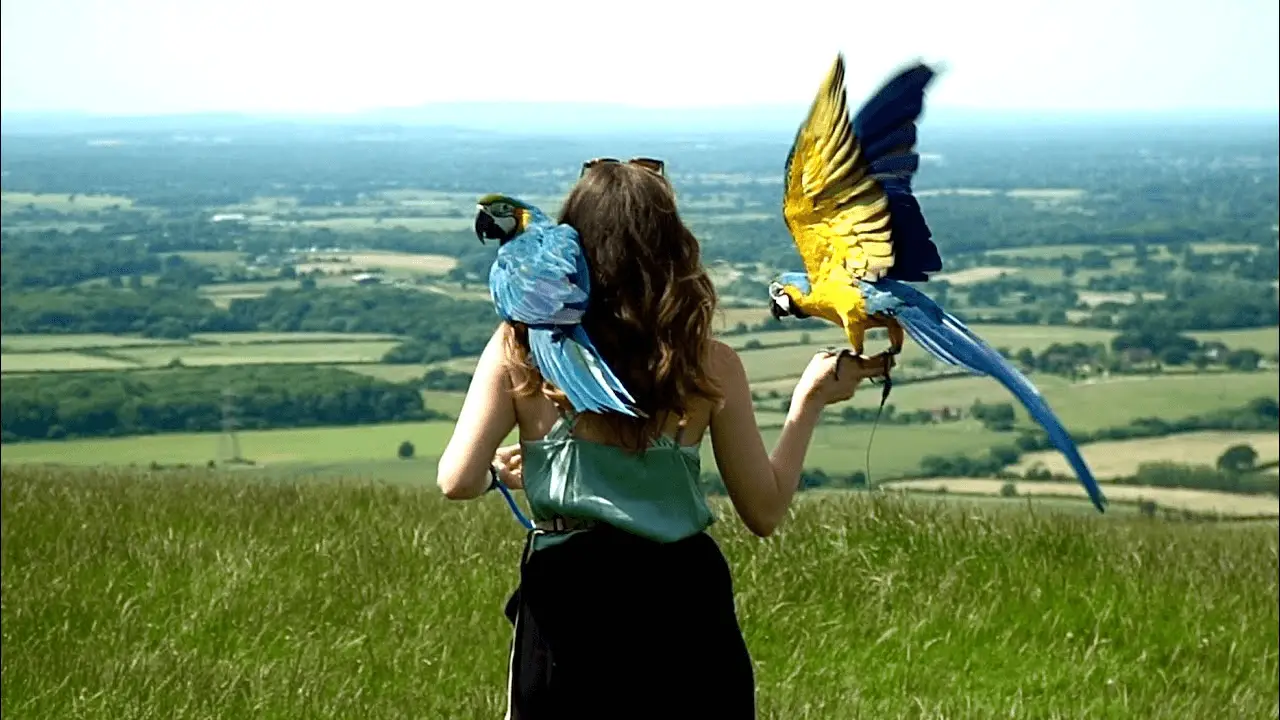
Make your environment more endearing
It is essential to clean and secure the place where you put the cage, and if you can add toys, treats, decorations, etc., it can help the parrot attach and bind to that place.
Can you take your parrot outside?
Yes, you can take your parrot outside, but it must be tamed and bound to you, and preferably trained not to fly away. Alternatively, you can use a parrot harness or a portable cage that you can use to board planes and travel.
Do parrots come back when they fly away?
If the parrot is of an intelligent breed, is attached to its owner, and has healthy and delicious food, it is possible that the parrot will return because he misses his house and still remembers the way home. But this rarely happens and most parrots fly away and never return because they feel lonely or for any of the reasons mentioned earlier.
Can pet parrots survive in the wild?
This is a question that owners may ask themselves when their charming friend accidentally flies away, and the answer depends on the breeds of parrots. Some parrots live widely in many areas, such as Quaker parrots that live wildly almost everywhere, increasing the chances of survival after fledging.
Other breeds, such as cockatoos and macaws, can suffer after flying away because there are no wild herds they can join and continue to live. They can find food, but in most cases, it will not be enough. Apart from safety, which may decrease after take-off.
In fact, pet parrots will have a hard time surviving in the wild after flying away, but nothing is impossible!
Reasons why parrots fly away
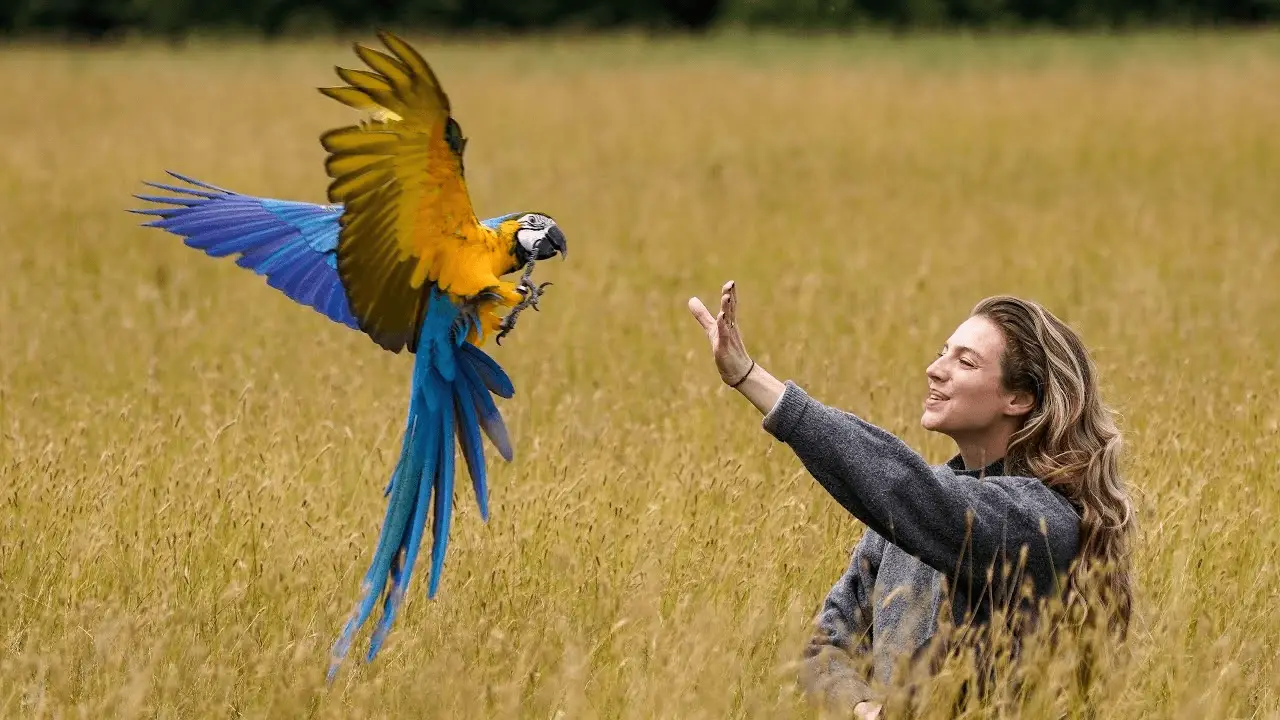
How to retrieve your parrot
If your parrot has flown away, don’t lose hope. Some parrots understand that they come back when they are hungry, not precisely to come back to you, but they land in any area similar to their own home (Editor’s note: at home) to find food.
So you can make an announcement and preferably a printed photo in the surrounding neighborhoods in case the parrots have landed in an area close to you.
You can put your parrot’s cage outside your home, in the yard, or in an exposed place where the bird can see if it flies over the area, in the hope that the parrot will recognize its home. You can put food and treats inside the cage in case the bird gets hungry.
In conclusion, parrots can seize any opportunity to fly away for many reasons, such as lack of security, food, social interaction, feeding, boredom, and many more.
And the best way to avoid this is to enrich the parrot’s environment by providing it with everything it needs, such as toys, food, treats, social interactions, and training, preferably from an early age because parrots are bred by their owner from an early age are extremely loyal.
Share this article with your parrot friends on social networks!
Their Worst Fear Comes True, Macaw Parrot Flies Away on DAY ONE Outside!
Source: BirdTricks

